Advantages of Metal Presswork in Automotive and Industrial Manufacturing
Metal presswork, commonly known as metal stamping, is a core process in modern manufacturing that turns flat metal sheets into useful parts. It’s the method behind many metal components in cars, machinery, and everyday products. This process uses powerful machines (presses) and custom dies (moulds) to press metal into a desired shape. The advantages of metal presswork, especially for industries like the automotive and heavy industrial sectors, are significant.
In simple terms, metal presswork offers manufacturers a way to make parts fast, cost-effectively, with high consistency, and with minimal material waste. Today, we’ll discuss how presswork works and why it benefits industries such as automotive and heavy equipment manufacturing.
What is Metal Presswork?
Metal presswork (or metal stamping) is essentially a way to convert flat metal sheets into specific shapes by using high-pressure presses and dies. A sheet of metal (or sometimes a metal coil) is fed into a press.
The press then forces the metal into a mould (die) or against a cutting tool, stamping out the piece. This could involve punching (cutting out shapes), bending (folding metal), or drawing (stretching metal into a form). The result is a metal part formed exactly to the desired shape.
Manufacturers widely use this process because, once they prepare the tooling (dies), the press produces part after part with very little manual work. Industries from automotive to electronics and heavy machinery rely on presswork to create everything from car body panels to brackets and gears itdprecision.com. The presswork process is fast, repeatable, and ideal for making large numbers of identical parts.
Check our detailed guide on metal presswork for more information.
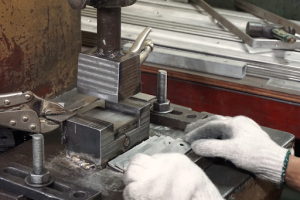
Advantages of Metal Presswork
Here are some advantages that metal presswork offers:
Cost Efficiency for Manufacturers
Metal presswork offers excellent cost efficiency, especially for large production runs. Once the dies are created and set up, thousands of identical parts can be produced with very little extra labour.
Another aspect of cost efficiency is the long-term use of tools: the dies (which are the custom moulds) can last for extensive production runs, spreading out their initial cost over hundreds of thousands of parts. This economy of scale means that for large production batches, presswork often becomes much cheaper per part than processes like machining or welding separate pieces.
At Kirmell Ltd, high-quality pressings are delivered at competitive costs, helping manufacturers reduce expenses without compromising on quality.
High-Speed Production
One of the strongest benefits of presswork is its speed. Press machines can produce parts in seconds, enabling manufacturers to fulfill large orders and meet tight deadlines. In industries like automotive, this speed is vital to keep assembly lines running smoothly. Automation further enhances this process with automated feeders and robotic arms, reducing the need for manual work and increasing output.
Consistency and Quality
Another major advantage of metal presswork is the consistency of the parts it produces. Because presswork uses precisely made dies and controlled press machines, every stamped part comes out virtually identical to the last. This is crucial in industries like automotive and heavy equipment manufacturing, where parts often must fit together exactly or meet strict standards.
For example, in automotive manufacturing, components like engine brackets or transmission mounts require exact dimensions to fit correctly. Stamping processes can hold tight tolerances on such parts, ensuring that each piece will fit and function as intended, without the need for hand-finishing or adjustments.
Kirmell’s presswork services are designed with this consistency in mind, ensuring every part meets strict industrial standards.
Material Savings and Sustainability
Metal presswork is also advantageous for its material efficiency. The process maximizes the use of the metal sheet, wasting very little material. In stamping, fabricators often lay out (nest) parts on the sheet in an optimal way to produce the most pieces per sheet. They can often recycle any leftover scraps.
Compared to other methods like machining (which cuts away material from a larger block and can leave a lot of waste), presswork is much more frugal in material usage. Modern stamping techniques ensure almost every part of the metal sheet is used, greatly reducing scrap material.
This efficient use of raw material means manufacturers save money on metal, and it also leads to less waste going into recycling or landfills.
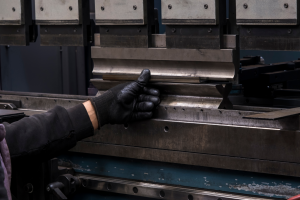
Strength and Durability
Metal presswork doesn’t just offer speed and accuracy it also enhances the strength and structural integrity of the parts being produced. During the presswork process, especially when using cold-forming techniques, the metal undergoes strain hardening, which increases its strength without adding additional weight or requiring further treatment. This is especially beneficial for components that need to withstand pressure, impact, or constant use.
In industries like automotive, construction, and agricultural machinery, strength and durability are non-negotiable. Parts such as chassis brackets, engine mounts, support beams, and protective housings must perform under heavy loads and rough environments. Pressed metal parts retain their shape and structural stability even after extended use, which makes them ideal for these demanding applications.
Kirmell Ltd supports clients in both these sectors with tailored presswork services for both small-batch and high-volume production. Contact us today to get a quote.
Fast Turnaround for Urgent Needs
One of the standout advantages of metal presswork is its ability to respond quickly to urgent production needs. Once the tooling (dies) is ready, presswork can deliver large quantities of parts in a very short time. This makes it an ideal solution for industries where demand can change quickly or where delays can lead to costly downtime.
For example, in the automotive and heavy machinery sectors, manufacturers often face tight schedules and unexpected part shortages. Presswork allows suppliers to meet these needs efficiently by delivering high volumes with short lead times, keeping production lines moving and avoiding disruptions.
Working with experienced presswork providers like Kirmell Ltd adds an extra layer of reliability. Kirmell combines speed with quality, offering clients a streamlined process from order to delivery. Kirmell uses advanced machinery, skilled technicians, and strong in-house tooling capabilities to deliver parts quickly and complete them correctly the first time.
Conclusion
Metal presswork continues to be one of the most effective and efficient manufacturing methods for creating strong, accurate, and scalable metal parts. With advantages like high speed, low cost, durability, and precision, it’s no surprise that presswork is at the heart of industries like automotive, construction, and heavy machinery.
As technologies evolve and demand increases, companies that invest in reliable presswork solutions will stay ahead in terms of both productivity and quality. By partnering with expert providers like Kirmell Ltd, manufacturers gain not just a service provider, but a dependable partner committed to delivering excellence, press after press.
Kirmell Metal Press Services: Precision You Can Trust
At Kirmell Ltd, we specialise in delivering high-quality metal presswork services tailored to the needs of industrial manufacturers. With decades of experience, we support clients across the automotive, construction, heavy equipment, and engineering sectors by producing reliable, cost-effective metal components in both small and large volumes.
Our in-house capabilities include medium to heavy-duty pressings, custom toolroom support, and rapid turnaround on urgent orders. Whether you need basic stamped washers or precision-formed brackets and mounts, our fully trained team ensures consistent quality and fast delivery every time.
Need a trusted metal presswork partner? Contact Kirmell today at [email protected] or visit our website to learn how we can support your next project with expert fabrication and presswork services.
FAQs
What is metal presswork used for?
Why is presswork preferred over other metal forming methods?
What industries benefit most from metal presswork?
Can metal presswork handle custom or complex designs?
Does Kirmell offer presswork services for large orders?

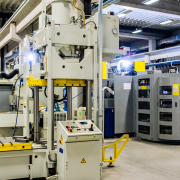
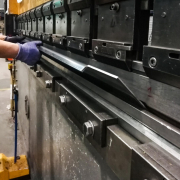
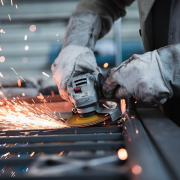
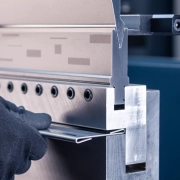
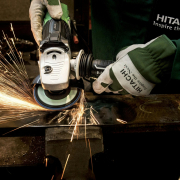
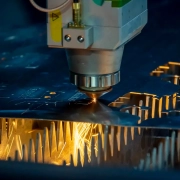
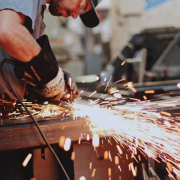
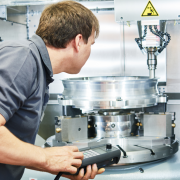



Leave a Reply
Want to join the discussion?Feel free to contribute!